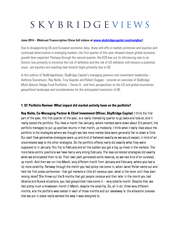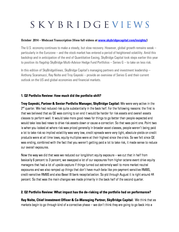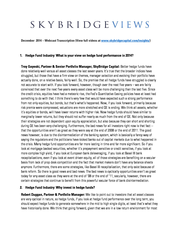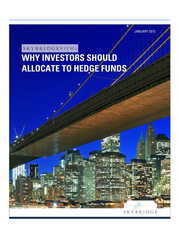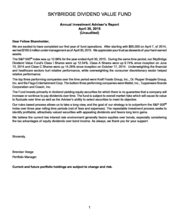Portfolio Review: What impact did market activity have on the portfolio? – June 2014
SkyBridge Capital
Description
Important Information
All investments are subject to risk, including the possible loss of the money you invest.
For more information about SkyBridge Multi-Adviser Hedge Fund Portfolios – Series G (“Series G”), call 1888-759-2730, to obtain a prospectus. Investment objectives, risks, charges, expenses, and other important
information about a fund are contained in the prospectus; read and consider it carefully before investing.
This webcast is for educational purposes only. We recommend that you consult a professional advisor
about your individual situation.
.

